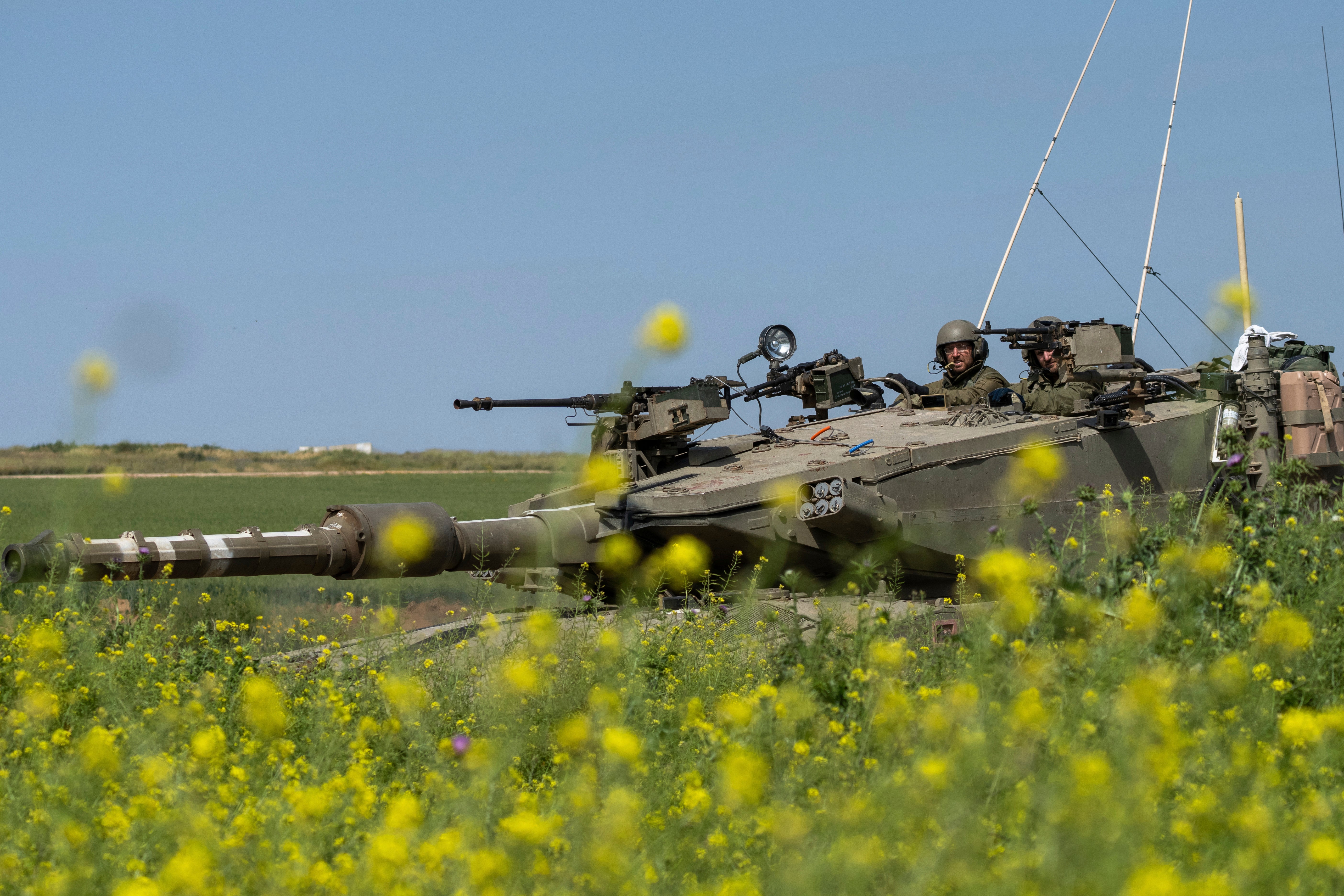US calls for vote Friday on UN resolution declaring that immediate Gaza cease-fire is `imperative'
The United States is calling for a vote Friday on a newly revised and tougher U.N. resolution declaring that “an immediate and sustained cease-fire” in the Israel-Hamas war is “imperative” to protect civilians and enable humanitarian aid to be delivered to more than 2 million hungry Palestinians

Your support helps us to tell the story
From reproductive rights to climate change to Big Tech, The Independent is on the ground when the story is developing. Whether it's investigating the financials of Elon Musk's pro-Trump PAC or producing our latest documentary, 'The A Word', which shines a light on the American women fighting for reproductive rights, we know how important it is to parse out the facts from the messaging.
At such a critical moment in US history, we need reporters on the ground. Your donation allows us to keep sending journalists to speak to both sides of the story.
The Independent is trusted by Americans across the entire political spectrum. And unlike many other quality news outlets, we choose not to lock Americans out of our reporting and analysis with paywalls. We believe quality journalism should be available to everyone, paid for by those who can afford it.
Your support makes all the difference.The United States called for a vote Friday on a newly revised and tougher U.N. resolution declaring that “an immediate and sustained cease-fire” in the Israel-Hamas war in Gaza is “imperative” to protect civilians and enable humanitarian aid to be delivered to more than 2 million hungry Palestinians.
In the previous draft, the Security Council did not make such a declaration. Instead, it would have supported international efforts for a cease-fire as part of a hostage deal.
The new draft obtained Thursday by The Associated Press “determines” — which is a council order — “the imperative of an immediate and sustained cease-fire,” with no direct link to the release of hostages taken during Hamas’ surprise attack in Israel on Oct. 7. But “toward that end” it would unequivocally support diplomatic efforts “to secure such a cease-fire in connection with the release of all remaining hostages.”
After the 15 Security Council members met behind closed doors Thursday afternoon to discuss Gaza, U.S. Ambassador Linda Thomas-Greenfield said when asked if the U.S. draft would be adopted: “I am optimistic. That’s why it took us so long, because we worked so hard.”
Russia’s deputy U.N. ambassador, Dmitry Polyansky, told reporters that U.S. Secretary of State Antony Blinken is pressing for an immediate cease-fire and if the resolution calls for an immediate cease-fire “we will, of course, support it.”
But he questioned the wording of the U.S. draft, asking: “What’s an imperative? I have an imperative to give you $100, but … it’s only an imperative, not $100.”
“So, somebody’s fooling around, I think, international community,” Polyansky said. “We are not satisfied with anything that doesn’t call for immediate cease-fire. I think everybody is not satisfied with this. Even Secretary Blinken is not satisfied.”
Meanwhile, the 10 elected members of the Security Council have been drafting their own resolution that would demand an immediate humanitarian cease-fire for the Muslim holy month of Ramadan, which began March 10, to be “respected by all parties leading to a permanent sustainable cease-fire.”
It also would demand “the immediate and unconditional release of all hostages” and emphasize the urgent need to protect civilians and deliver humanitarian aid throughout the Gaza Strip.
That draft had not yet been put in “blue,” which is the final form required for a vote.
France’s U.N. ambassador, Nicolas de Riviere, told reporters that “there is a desire to take action, no one want to procrastinate, so we hope that a decision can be made by tomorrow evening.”
“We need a cease-fire right now,” he said. “There are two options: Either the U.S. text is adopted and then we’ll move to the next phase of this crisis management, or the text is not adopted and then the draft of the elected members will come to the table and put to the vote, and I hope it will be adopted.”